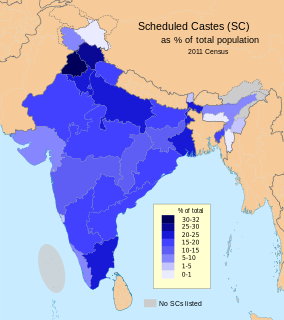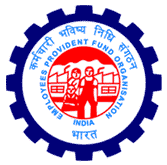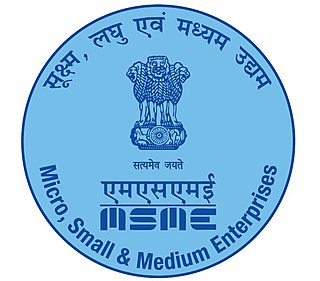Other Backward Class is a collective term used by the Government of India to classify castes which are educationally or socially disadvantaged. It is one of several official classifications of the population of India, along with General Class, Scheduled Castes and Scheduled Tribes. The OBCs were found to comprise 55% of the country's population by the Mandal Commission report of 1980, and were determined to be 41% in 2006 when the National Sample Survey Organisation took place. There is substantial debate over the exact number of OBCs in India; it is generally estimated to be sizable, but many believe that it is higher than the figures quoted by either the Mandal Commission or the National Sample Survey.

The Scheduled Castes (SCs) and Scheduled Tribes (STs) are officially designated groups of people and among the most disadvantaged socio-economic groups in India. The terms are recognized in the Constitution of India and the groups are designated in one or other of the categories. For much of the period of British rule in the Indian subcontinent, they were known as the Depressed Classes.
The Khadii and Village Industries Commission (KVIC) is a statutory body formed in April 1957 by the Government of India, under the Act of Parliament, 'Khadi and Village Industries Commission Act of 1956'. It is an apex organisation under the Ministry of Micro, Small and Medium Enterprises, with regard to khadi and village industries within India, which seeks to - "plan, promote, facilitate, organise and assist in the establishment and development of khadi and village industries in the rural areas in coordination with other agencies engaged in rural development wherever necessary.".

The Employees' Provident Fund Organisation (EPFO) is one of the two main statutory social security bodies under the Government of India's Ministry of Labour and Employment and is responsible for regulation and management of provident funds in India, the other being Employees' State Insurance. The EPFO administers the mandatory provident fund. It also manages social security agreements with other countries. International workers are covered under EPFO plans in countries where bilateral agreements have been signed. As of May 2021, 19 such agreements are in place. The EPFO's top decision-making body is the Central Board of Trustees (CBT), a statutory body established by the Employees' Provident Fund and Miscellaneous Provisions (EPF&MP) Act, 1952. As of 2018, more than ₹11 lakh crore are under EPFO management.
Mahatma Gandhi National Rural Employment Guarantee Act 2005 or MNREGA, earlier known as the National Rural Employment Guarantee Act or NREGA, is an Indian labour law and social security measure that aims to guarantee the 'right to work'. This act was passed in 23 August 2005 under the UPA government of Prime Minister Manmohan Singh following tabling of the bill in parliament by the Minister for Rural Development Raghuvansh Prasad Singh.
Reservation is a system of affirmative action in India that provides historically disadvantaged groups representation in education, employment, government schemes, health, insurance, banking, foreign higher education, scholarships and politics. Based on provisions in the Indian Constitution, it allows the Union Government and the States and Territories of India to set reserved quotas or seats, which lower the qualifications needed in exams, job openings, university admissions, scholarships, loan approval, promotions etc. for "socially and educationally backward citizens."

The Union Government set up the National Commission for Minorities (NCM) under the National Commission for Minorities Act, 1992. Six religious communities, viz; Muslims, Christians, Sikhs, Buddhists, Zoroastrians (Parsis) and Jains have been notified in Gazette of India as minority communities by the Union Government all over India. Original notification of 1993 was for five religious communities; Sikhs, Buddhists, Parsis, Christians and Muslims, later in 2014, Jains community was also added. As per Census 2001, these six communities consists of 18.8% of the country's population.

The Ministry of Micro, Small and Medium Enterprises is the ministry in the Government of India. It is the apex executive body for the formulation and administration of rules, regulations and laws relating to micro, small and medium enterprises in India. The Minister of Micro, Small and Medium Enterprises is Narayan Rane.

The Ministry of Women and Child Development, a branch of the Government of India, is an apex body for formulation and administration of the rules and regulations and laws relating to women and child development in India. The current minister for the Ministry of Women and Child Development is Smriti Irani having held the portfolio since 31 May 2019.
The Rubber Board is a statutory body constituted by the Government of India, under the Rubber Act 1947, for the overall development of the rubber industry in the country.
Local government in India refers to governmental jurisdictions below the level of the state. India is a federal republic with three spheres of government: central, state and local. The 73rd and 74th constitutional amendments give recognition and protection to local governments and in addition each state has its own local government legislation. Since 1992, local government in India takes place in two very distinct forms. Urban localities, covered in the 74th amendment to the Constitution, have Nagar Palika but derive their powers from the individual state governments, while the powers of rural localities have been formalized under the panchayati raj system, under the 73rd amendment to the Constitution.

The Meghalaya Legislative Assembly is the unicameral legislature of the Indian state of Meghalaya.
The National Development Council (NDC) or Rashtriya Vikas Parishad is the apex body for decision creating and deliberations on development matters in India, presided over by the Prime Minister. It was set up on 6 August 1952 to strengthen and mobilize the effort and resources of the nation in support of the Five Year Plans made by Planning Commission, to promote common economic policies in all vital spheres, and to ensure the balanced and rapid development of all parts of the country. The Council comprises the Prime Minister, the Union Cabinet Ministers, Chief Ministers of all States or their substitutes, representatives of the Union Territories and the members of the NITI Aayog.
India's National Commission for Backward Classes is a constitutional body under the Ministry of Social Justice and Empowerment, established on 14 August 1993. It was constituted pursuant to the provisions of the National Commission for Backward Classes Act, 1993.
The National Commission for Scheduled Castes is an Indian constitutional body under the jurisdiction of Ministry of Social Justice and Empowerment, Government of India established with a view to provide safeguards against the exploitation of Scheduled Castes and Anglo Indian communities to promote and protect their social, educational, economic and cultural interests, special provisions were made in the Constitution. Article 338 of the Indian constitution deals with National Commission for Scheduled Castes. Article 338 A deals with National Commission for Scheduled tribes.
National Commission for Scheduled Tribes (NCST) is an Indian constitutional body that was established through Constitution Act, 2003.
National Safai Karamcharis Finance and Development Corporation (NSKFDC) was set up in January 1997 as a non profit company under Ministry of Social Justice and Empowerment, Government of India to empower the Manual Scavengers, Safai Karamcharis and their dependents to break away their traditional occupation, depressed social condition and poverty and leverage them to work their own way up the social and economic ladder with dignity and pride. Its head office is currently located in Greater Kailash Enclave Part-II, New Delhi.
National Commission for Minority Educational Institutions (NCMEI) was established to protect and safeguard the educational institutions which are established by the religious minorities in India. It is a statutory body established by National Commission for Minority Educational Institutions Act, 2004. This also ensure rights of religious minorities to establish and administer educational institutions of their choice as provided in the Article 30 of the Constitution of India. Linguistic Minorities do not come under the ambit of the NCMEI Act, 2004

The Provisions of the Panchayats Act, 1996 or PESA is a law enacted by the Government of India for ensuring self governance through traditional Gram Sabhas for people living in the Scheduled Areas of India. Scheduled Areas are areas identified by the Fifth Schedule of the Constitution of India. Scheduled Areas are found in ten states of India which have predominant population of tribal communities. The Scheduled Areas, were not covered by the 73rd Constitutional Amendment or Panchayati Raj Act of the Indian Constitution as provided in the Part IX of the Constitution. PESA was enacted on 24 December 1996 to extend the provisions of Part IX of the Constitution to Scheduled Areas, with certain exceptions and modifications. PESA sought to enable the Panchayats at appropriate levels and Gram Sabhas to implement a system of self-governance with respect to a number of issues such as customary resources, minor forest produce, minor minerals, minor water bodies, selection of beneficiaries, sanction of projects, and control over local institutions. PESA is an Act to provide for the extension of the provisions of Part IX of the Constitution relating to the Panchayats and the Scheduled Areas. PESA was viewed as a positive development for tribal communities in Scheduled Areas who had earlier suffered tremendously from engagement with modern development processes and from the operation of both colonial laws and statutes made in independent India. The loss of access to forest, land, and other community resources had increased their vulnerability. Rampant land acquisition and displacement due to development projects had led to large scale distress in tribal communities living in Scheduled Areas. PESA was seen as a panacea for many of these vulnerabilities and sought to introduce a new paradigm of development where the tribal communities in such Scheduled Areas were to decide by themselves the pace and priorities of their development.
The Delhi Commission for Women (DCW) is a statutory body of the Government of Delhi constituted to investigate and examine all matters relating to the safety and security of women under the constitution and other laws in Delhi, India.






